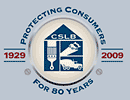Seal coating is basically a process of applying a liquid sealant on asphalt driveways, paved areas like parking lots, etc., to seal the surface against voids and cracks to protect and enhance the pavement’s longevity against natural corrosive elements. The primary purpose of asphalt seal coating is to replenish the oils on the surface of the asphalt that have been depleted by the sun and other natural elements.
There are many benefits of asphalt seal coating. In this guide, we’ll go over how asphalt seal coating works and the many ways you can do it.
How Asphalt Seal Coating Works
Liquid sealants can come in a variety of colors or shades and can be customized to the specific needs of your project. The sealant will then dry and harden, protecting your asphalt from weathering, UV damage, and other harmful elements.
What this means is that the seal coat will help keep your asphalt driveway or parking lot looking great for many years while also protecting it from harsh elements.
The sealant is applied in a thin layer over the asphalt surface. The sealant is a liquid that dries to a hard, black surface. This will also make the asphalt surface smooth so that it is easier to clean and less likely to get dirt and oil stains.
The sealant will also make the asphalt surface less slippery. This is a great benefit for areas where there is a lot of traffic, such as a parking lot.
Types of Asphalt Seal Coating Methods
There are several types of asphalt seal coating methods. Here are some of the main ones:
1) Asphalt Emulsion Sealers
The environment-friendly asphalt seal coating method has to be of asphalt emulsion sealers. That’s why they are becoming increasingly popular and have come to be known as the environment-friendly alternate for your driveway protection.
Although, it is essential to note here that while this method of asphalt seal coating is on the pricey side, it is potentially less resistant in case of chemical or oil spills. It is highly prone to staining and requires a seasonal timeline for renewal as it needs the May to September weather for curative purposes.
2) Coal Tar Sealers
When it comes to coal tar sealers, they have been used for a long time and are known to be very durable. They are also resistant to oil and chemical spills and are not as prone to staining as asphalt emulsion sealers.
However, coal tar sealers are not as environmentally-friendly as asphalt emulsion sealers and can be harmful to both humans and animals. They also have a strong smell, which can be unpleasant.
3) Acrylic Sealers
Acrylic sealers are a popular choice for sealing asphalt pavement. They are known for being very durable and long-lasting, and they are resistant to oil and chemical spills. They are also less prone to staining than asphalt emulsion sealers.
Acrylic sealers are applied in a thin coat, and they should be allowed to dry completely before driving on the pavement. They should be reapplied every two to three years for best results.
Conclusion
There are many different types of sealers available for asphalt pavement, and each has its own benefits and drawbacks. The best sealer for your pavement will depend on your specific needs and preferences.
Todd Heldt Excavating, Inc. can help get smoothen your asphalt pavement. We are asphalt paving contractors with the best tools in our arsenal. Contact us today to get started.




